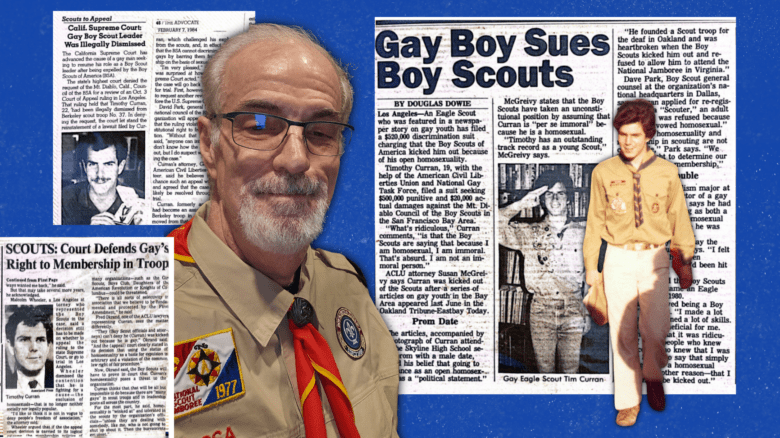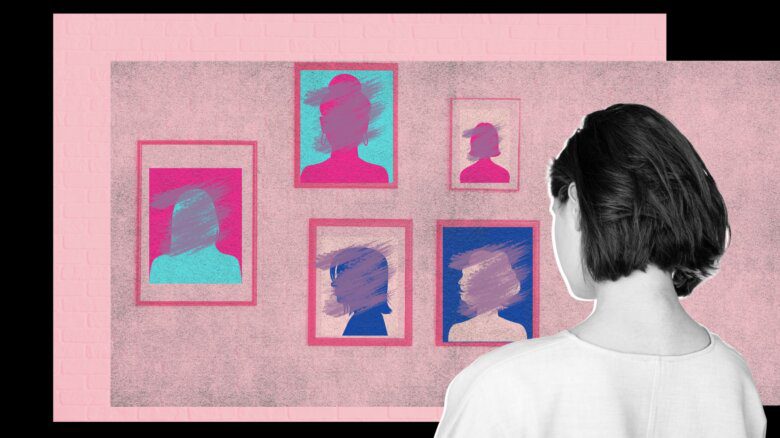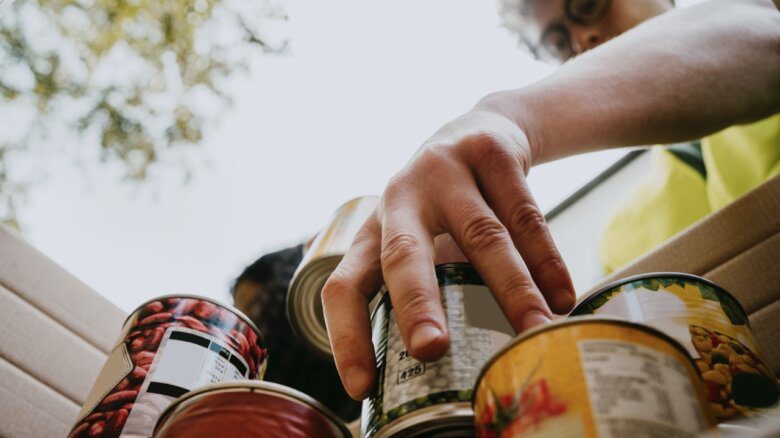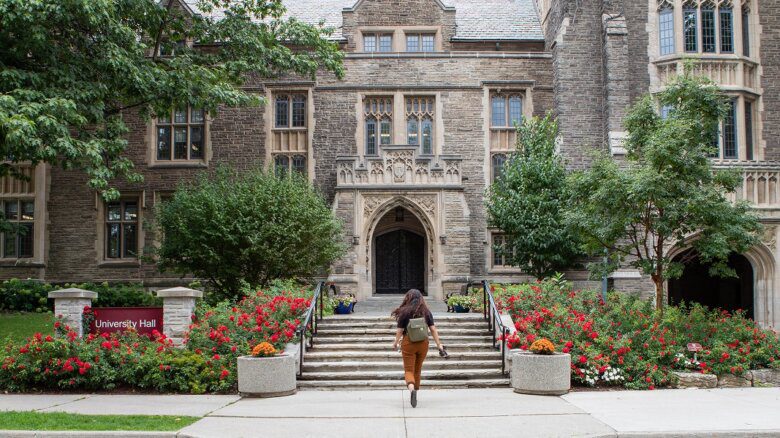On a sticky summer day in rural West Virginia, 17-year-old Alexa stammered as she read her story from a piece of notebook paper. (Alexa is a pseudonym used for privacy and safety reasons.) She was born with a stutter, and as she told me later that day standing beside a campfire in a Teen Titans T-shirt and black swimming trunks, people look at her differently because of it. They assume that she is broken, she said, but standing in front of everyone with a lock of bright blue hair over her face, she did not crack under the weight of her words.
“I was almost aborted, and I wish I would have been,” Alexa said as her fellow campers listened intently from wooden picnic tables under the cooling shade of a small, concrete pavilion. “I grew up in poverty, my mother not being able to feed us anything but baloney sandwiches. She was trapped in an abusive marriage. He threw things at her, screamed at her daily and never gave her the option of ‘no.’”
Alexa presented her story as part of the Appalachian Queer Youth Summit, a five-day summer camp for LGBTQ2S+ teenagers hosted by the ACLU of West Virginia in Weston, almost exactly 100 miles from Alexa’s home on the outskirts of Charleston. It was the second day of a two-part op-ed workshop that I taught as a volunteer, one that focused on the art of opinion writing through a personal lens. After spending the first day learning the mechanics of editorial structure, campers were presented with an assignment to write about their reaction to the Supreme Court’s decision to repeal Roe v. Wade. They were asked to form groups to craft the beginning of an op-ed about how the decision impacts their day-to-day lives as West Virginians.
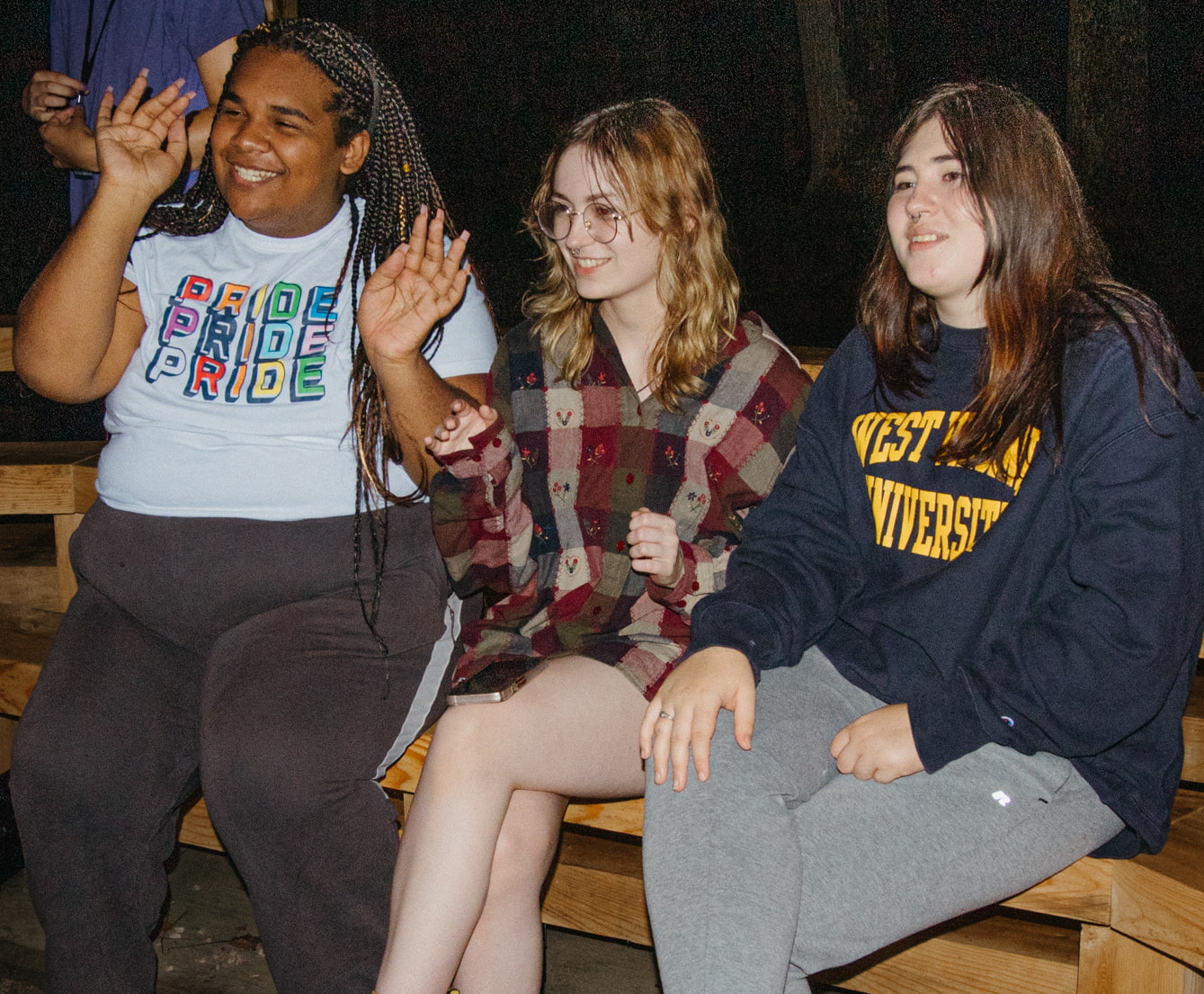
Credit: Justin Murphy
Each table approached the subject from a different lens. One group was occupied predominantly by transmasculine campers, two of whom, Lonnie and Aaron, belong to a student-led Sexuality and Gender Alliance club in Morgantown that is working to distribute free gender-affirming care packages to trans students across the state. Their team’s op-ed addressed the reality that trans men also need reproductive healthcare, and following the repeal of the constitutional protections codified by Roe, members of the group said they are collectively grappling with the fear that they could be forced to carry an unwanted child to term should they become pregnant. Cesilee, an 18-year-old with a silver labret piercing and a jangle of friendship bracelets, was tapped by her team to read an essay about the abortion her great-grandmother received in 1979 after learning that her pregnancy was ectopic.
“She had four other children, so this would have been her fifth,” Cesilee would tell me after her presentation, our conversation punctuated by the hum of camp chatter from the near distance. “It proves that a lot of women who are having abortions aren’t just being reckless and careless. It’s no one’s business, but it shows that it’s not really a choice because if she had the choice, she would have wanted to keep it.”
After a vote conducted with tightly shut eyes and raised hands, Alexa’s fellow campers chose her team’s op-ed as the standout of the day, and it’s easy to see why. She told the story forcefully and unflinchingly because she’s told it so many times before. She has had to tell versions of it to police officers, social workers and anyone else who would listen, and she has had to tell it over and over again until they believe her. Illuminated by the firelight that evening, she told me that she had to be removed from her home after her father broke her foot, and she finds it ironic that the scar now permanently decorating her toe is in the shape of a heart. That incident occurred, she said, after years spent watching her father beat her sister in front of her, which she presumes was intended to teach her a lesson. “He didn’t want me to have my own thoughts and feelings,” she said, her fingers twiddling the silver pentagram necklace that she wears as an affirmation of her own voice.
Alexa said that things could have been different if her mother had the ability to choose another life for herself. Her mother got pregnant too young: at 19 years old, shortly after marrying Alexa’s father. Alexa was their third child, and her parents thought about terminating the pregnancy, as she wrote in her piece, because they “could not afford the kids they had and didn’t know if they could take another.” The three children Alexa’s mother shared with a man who abused her made it difficult to leave. Even after Alexa was placed into foster care, her mother would move in with her own parents for a few months at a time, but then come back.
Her mother left Alexa’s father for good just two months ago, and Alexa said that she could have left much sooner if there weren’t so many mouths to feed and food that needed to be put on the table. When her sister called to tell her the news, Alexa could then see the woman who raised her clearly for the very first time. “I saw the child my mother truly was,” she wrote in her op-ed. “She had never grown up. She never had the chance to live a normal life. It was only us.”
Alexa was one of 29 students at the camp, which is currently in its third year. Each summer, students come from all over West Virginia to learn how to advocate for themselves and their communities through a series of workshops on subjects ranging from storytelling and citizen lobbying to know-your-rights trainings. The 2021 camp featured a panel of out LGBTQ2S+ elected officials, and Wheeling city councilwoman Rosemary Ketchum, the only trans woman ever elected to public office in West Virginia, pulled double duty by volunteering as a camp counsellor. This year’s lineup included a presentation from Ramsie Monk, director of development with the Women’s Health Center of West Virginia, to discuss the impact of Roe’s repeal. A 2020 Miss West Virginia contestant and Miss Discovery Trail winner, Ramsie also offered some impromptu makeup tips following her talk.
“I get encouraged when I see the young people here today who want to learn how to fight for us.”
Many of the adults who participated in the camp, which is the only one of its kind in West Virginia, said they wish it had existed when they were growing up in a state where it isn’t always easy to be queer. Jeanne Peters and Kim Williams, a lesbian activist couple who spoke on a queer advocacy panel, met 28 years ago at a gay bar called Different Strokes in Parkersburg, a former industrial hub that was at one time the queerest town in America per capita. Much has changed since that fateful evening when Kim spotted Jeanne’s “Commie Dyke” T-shirt across the bar. Although West Virginia has always been culturally conservative, it was a Democratic stronghold until 2000, when it voted for the Republican presidential nominee for just the fourth time in 70 years. It has since voted for the GOP candidate at every opportunity, culminating in Donald Trump’s 38-point rout of the state in 2020. Today, all three branches of West Virginia’s state government are controlled by conservatives.
As the couple stood under an awning to avoid the intermittent downpour that plagues West Virginia summers, Jeanne said she still believes that the state is a “place worth fighting for.” She added with a sigh, “It’s harder some days than others.” Just days before we spoke, state senators debated a near-total abortion ban to the sound of a primal scream from under the gold dome of the West Virginia Capitol Building, where protesters held signs that read “Stop Stealing Healthcare” and “Abortion Is Freedom.” Although the effort has stalled for now, advocates expected that the bill would eventually pass by wide margins in a legislature that is one of the reddest in the country.
Having spoken at the camp now two consecutive years, Jeanne said it gave her hope for the future of the state. What makes the camp so special, as many people told me throughout the week, is that it presents a rare opportunity for West Virginians to find a makeshift community in their struggles, one where trauma and joy converge to create something altogether new: healing. A common sight throughout the week was seeing campers and counsellors spontaneously crying—not quite out of sadness, but a cautious optimism that West Virginia can heal with them.
“I get encouraged when I see the young people here today who want to learn how to fight for us,” Jeanne told me as the rain started to creep in. “I don’t think we lived our life the way that we have so that those who came behind us would have to refight the same battles. We hoped for different fights for them. West Virginia is a heartache a lot of the time, but it’s also home.”
Building the foundations
The first Appalachian Queer Youth Summit didn’t look anything like the camp does today. This year’s festivities were held at West Virginia University Jackson’s Mill, a 74-acre expanse that is home to a 4H camp outfitted with utilitarian cottages and residence buildings. An extremely popular destination for local youth organizations, Jackson’s Mill played host to a church group at the same time that queer kids from the ACLU of West Virginia descended upon the camp with their Doc Martens and fluorescent shocks of hair virtually every colour imaginable. But when the summit first began in 2020, the gathering was much more modest in scope: it was essentially a Zoom call held over a long afternoon to teach students about their rights as LGBTQ2S+ West Virginians and to discuss plans for the camp moving forward.
Mollie Kennedy, ACLU of West Virginia’s community outreach director and a lead organizer of the camp, admitted that the inaugural edition was not an ideal situation. Although the ACLU of West Virginia secured its first round of funding to hold a physical camp in 2019, the outbreak of the COVID-19 pandemic the following year would make that plan impossible. “We didn’t think that we could replicate what we were trying to do,” Mollie said as she pushed her rainbow-coloured glasses farther up the bridge of her nose. “Even if we did it all on Zoom, it just wouldn’t be the same.”
That beta test played an important part in the camp’s trajectory, however, by cementing the foundation for the relationships on which it would be built. Seven students took part in the very first meeting, but they kept coming together for regular Zoom calls in which they would brainstorm and organize actions. As the West Virginia Legislature advanced legislation last year to bar trans girls from women’s sports teams, their petite cabal wrote a letter to Gov. Jim Justice threatening legal action if House Bill 3293 became law. That warning was not theoretical. After Justice signed the bill in April 2021, the ACLU of West Virginia responded by filing a lawsuit against the state. A federal court issued a temporary injunction against HB 3293 last July, less than two months after it was enacted, but advocates are still fighting for the law’s full repeal.
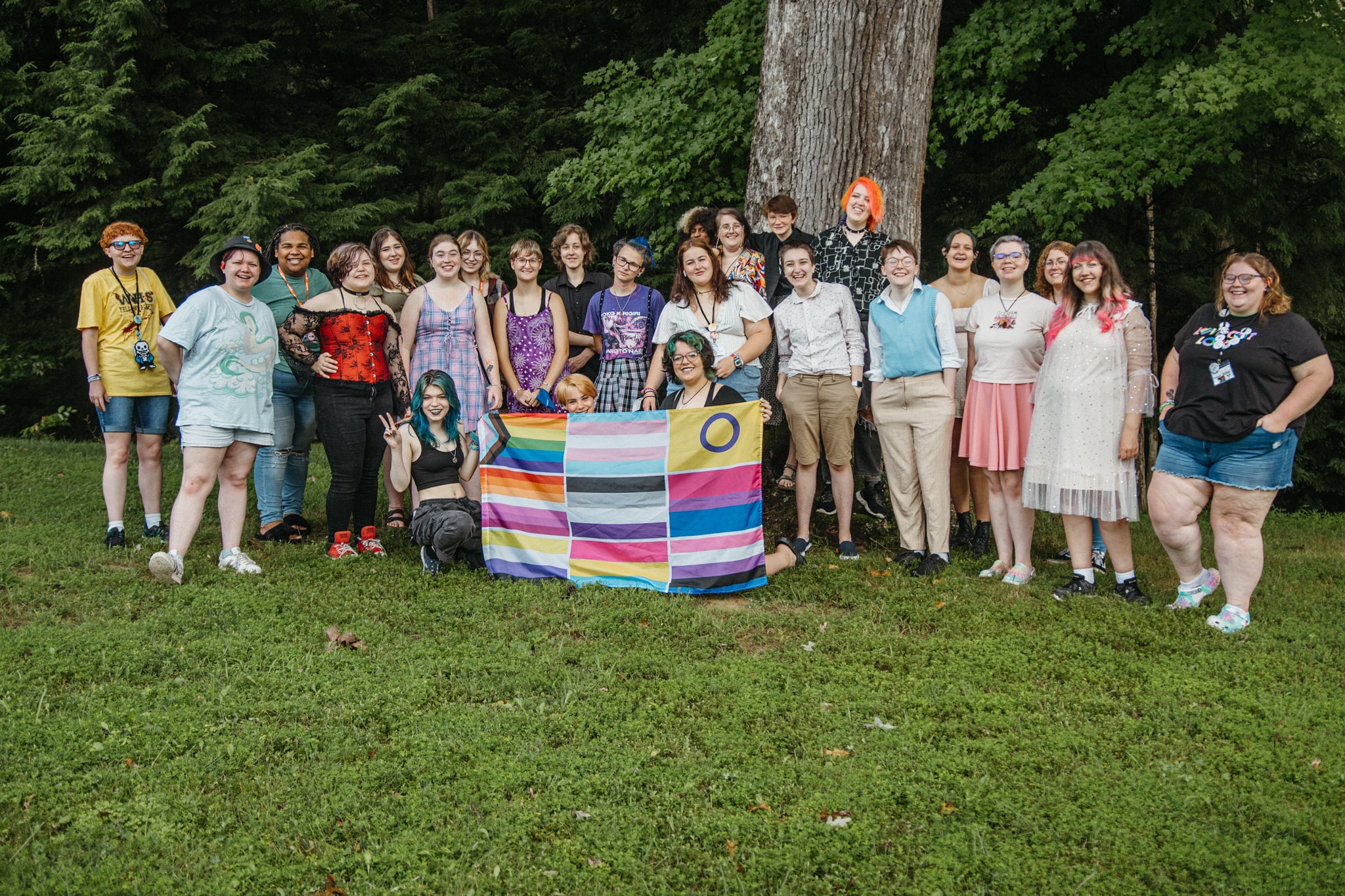
Credit: Justin Murphy
Those actions have become a key part of the camp’s mission. When campers came together for the first time in person last year with their sleeping bags and retainers in tow, the three days of trainings culminated in a letter-writing campaign urging Charleston, the state’s capital and largest city, to outlaw conversion therapy. The effort made a big impact: in advance of the Charleston City Council making history last August by becoming the first West Virginia municipality to ban attempts to “change” the identities of LGBTQ2S+ youth, a council member read the camp’s letter aloud to the chamber. Two other towns, Huntington and Wheeling, would soon follow suit with their own ordinances, and the circle completed itself when Braden, a 16-year-old student who spearheaded Wheeling’s conversion therapy ban, spoke at camp this year. Braden said he is thinking about becoming a camper himself in 2023.
Jaye, a 19-year-old college student who wore a black-and-white “World’s Okayest Lesbian” shirt the day we spoke, finally understood the power of what the space could be following the Charleston City Council vote. She was one of the original youth participants from that first Zoom meeting, a group that Mollie has since come to refer to as “the old people.” Having seen the community coalesce over the past three years, Jaye recalled feeling an “intense sense of pride and accomplishment” seeing her fellow campers affect change in a state where there can sometimes be little to celebrate. “What we’re all striving for is for somebody to actually listen to us,” she said. “We’re a bunch of kids, but we’re also the freshest minds you’re going to get. You need to listen to young people because we’re the ones who are going to be leading one day.”
Camp organizers hoped that students would be able to take the skills they learned back to their hometowns, many of which offer extremely scant resources for LGBTQ2S+ people. Among the many challenges that living in West Virginia poses to a queer young person is its geography: nicknamed the Mountain State for a reason, the entirety of West Virginia rests within the fog-covered hills of the Appalachians. None of its cities boast more than 50,000 residents, and even driving between its structurally segregated towns can take some determination. Taking Interstate 64 east from Charleston means first dipping 65 miles the south to circumnavigate back roads and rough terrain, adding an hour to the commute. That isolation has a way of rubbing off on the culture itself. When counsellors ordered pizza from the local Domino’s, one of the few establishments open in Weston on Sundays, a delivery person said the five-mile drive to the camp was “too far” and requested to drop off the order at a local florist’s shop that had shuttered several years prior.
Billy first learned who he was, he said, from “people who hated me.”
Riding in the car on one of our many trips to get supplies for the camp, ACLU of West Virginia communications director Billy Wolfe told me that he knows what it’s like to grow up in Appalachia with few tools to understand yourself. Billy first learned who he was, he said, from “people who hated me.” After being called a “faggot” by another boy when he was a child, he was forced to go look up what that word meant. As he got older, having pride in himself as a queer West Virginian proved to be hard won when those two identities were so often viewed as being diametrically opposed. Billy referenced a study in which a researcher asked participants what words they associated with the LGBTQ2S+ community and which they could relate to Appalachians, and none of the group’s choices overlapped.
Having organized the camp with Mollie since its inception, Billy admitted that he came into the summer looking for something that “might be a little selfish.” He needed some hope after a brutal past few months at the front lines of the fight for civil rights, where it increasingly feels as if the wins are few and far between. Billy found that encouragement, he said, in unexpected places throughout the week. Two of the camp’s youngest members, Cyrus and Z, were struck with imposter syndrome on the day that campers took a break from the day’s workshop schedule with a light canoe down the ochre waters of the West Fork River. Cyrus, particularly, struggled with the fear he wouldn’t be able to fulfill the assignment. “But what if I get tired?” he asked a camp counsellor. Cyrus temporarily froze out on the water, hoisting the oar aloft with both hands even when instructed to paddle by counsellors. “I am paddling!” he shouted back. The comic relief drew a glint of recognition from Billy, who said to himself with a chuckle, “God, I love gay people.”
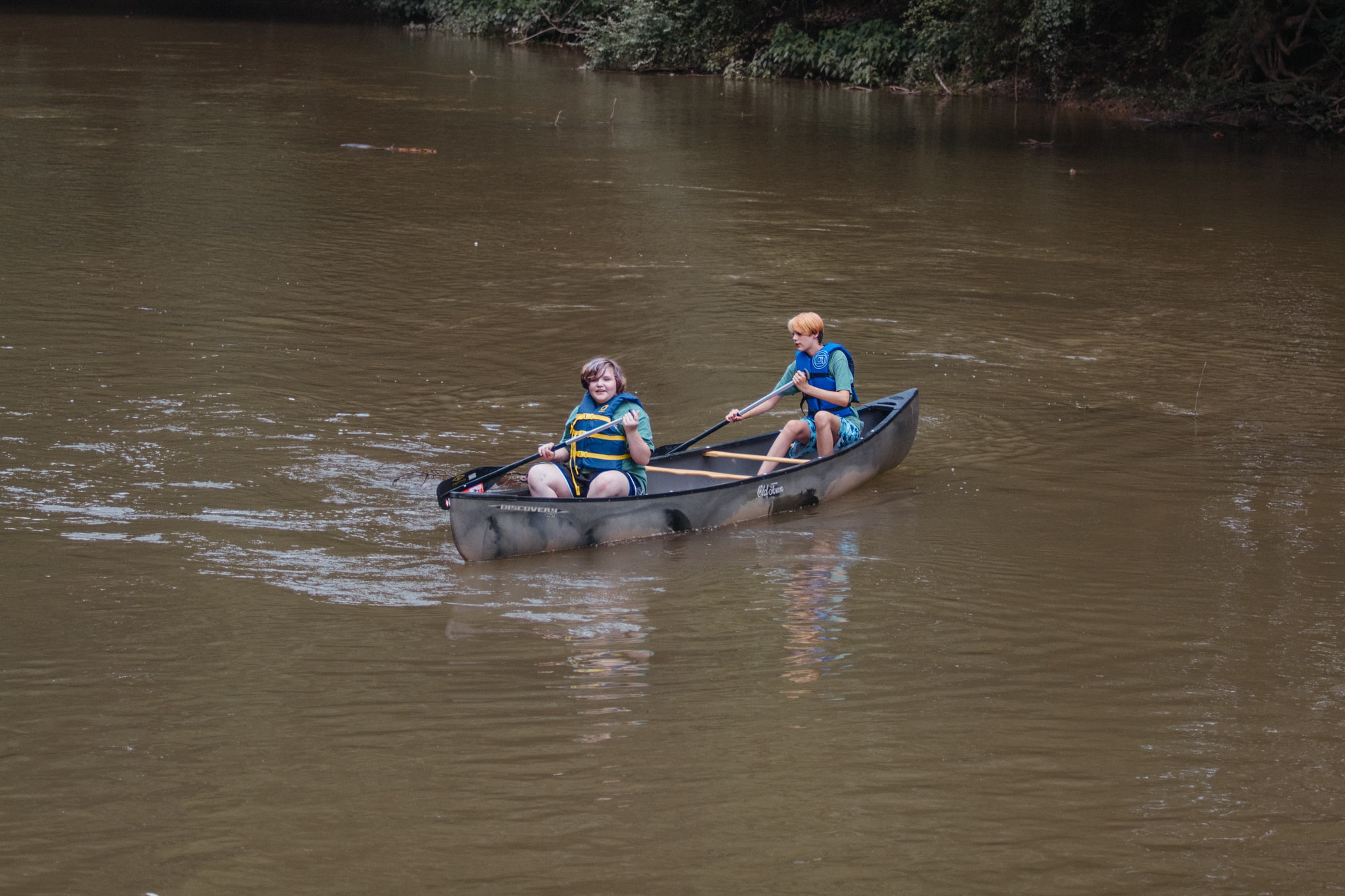
Credit: Justin Murphy
“I catch little moments of the campers interacting, knowing that for some of them, this is the first time that they’ve been around people their own age who identify as queer,” Billy said. “When I grew up in West Virginia 20 years ago, there was very little in the way of queer role models. I get a lot of fulfillment out of seeing that for these young people and knowing that I’m helping to contribute to something that will hopefully make their upbringing more positive and more affirming than mine.”
While the camp is primarily mission-driven, it’s also a place that lets kids be kids. The organizers learned from previous years that campers needed more downtime to hang out with each other and shake off their initial nerves about meeting new people, so this year’s schedule was peppered with the diversions one might expect from a group of teenagers. Campers ate s’mores by the fire as they were led in song by 22-year-old counsellor Grayson Cooper, who spent numerous teenage summers at camp and credits 4H as the first place it felt safe to be out as trans. For movie night, the group picked the ’90s road-trip comedy To Wong Foo, Thanks for Everything! Julie Newmar, which drew boisterous cheers when Stockard Channing’s small-town housewife tells her new acquaintance—played by Patrick Swayze in omnipresent six-inch heels—that she always knew she was a drag queen. “I know that I am very fortunate to have a lady friend who just happens to have an Adam’s apple,” she said to affirmative hoots and snaps from the crowd.
Spending the evening making buttons with friends or unsuccessfully attempting to tie-dye a thrift store wedding dress together shouldn’t feel so revolutionary, but many campers have seldomly, if ever, had the experience of being affirmed for who they are. For Cecil, the camp offered new experiences he didn’t think were possible. A 17-year-old who lives outside of Huntington in the kind of small town where everyone knows everyone, he confessed that he was nervous about the scheduled pool party because he hadn’t been swimming with another person for two years. He has been experiencing severe dysphoria around his body and hadn’t felt comfortable exposing those parts of himself that felt unguarded and raw. But seeing the other campers dotted with haphazardly applied sunblock in their pastel Billabong swim trunks, the vision looked like home.
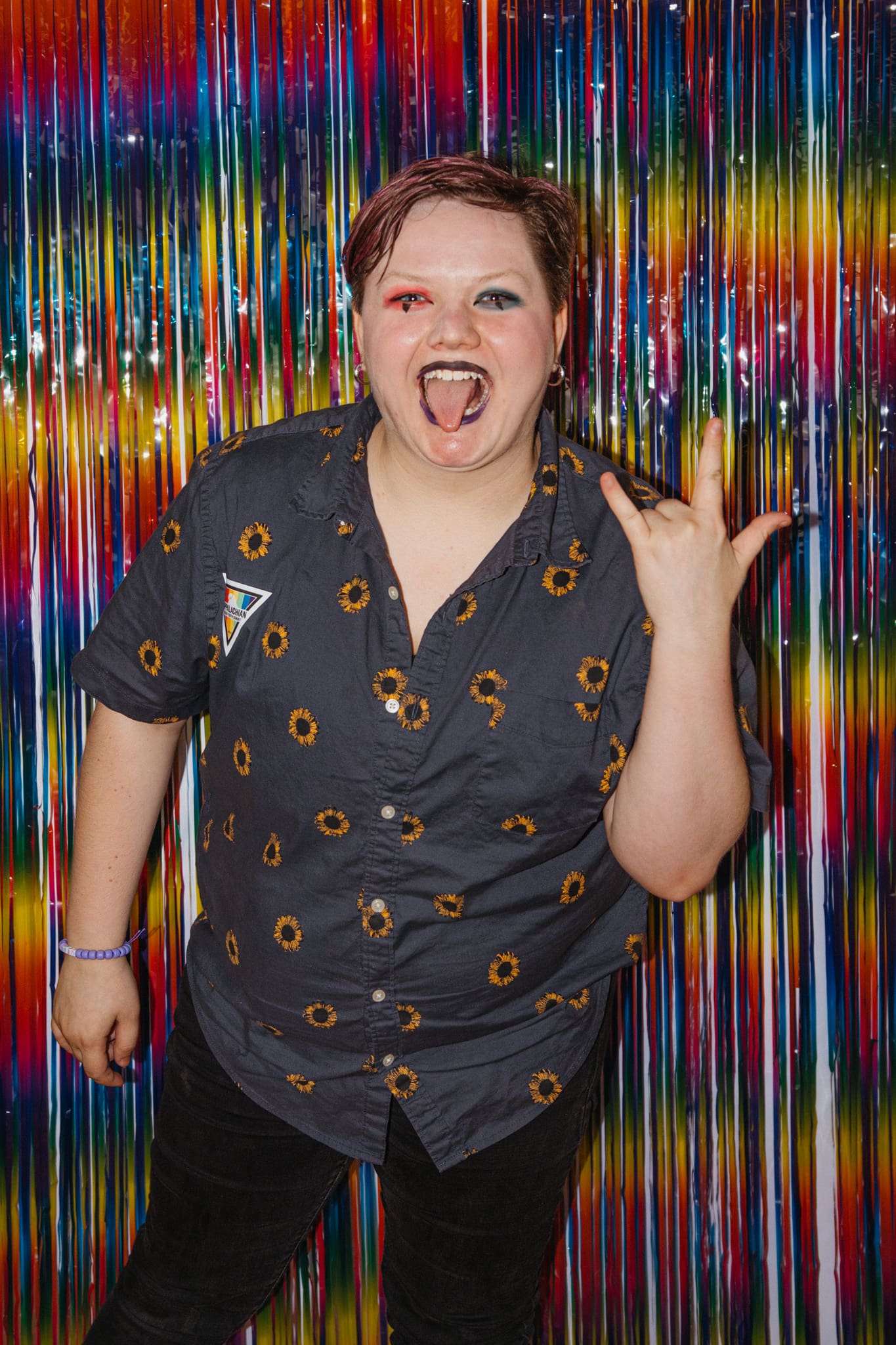
Credit: Justin Murphy
“I was honestly a little bit scared,” Cecil told me later that night, now outfitted in a navy button-up covered in sunflowers and clown-themed eyeshadow applied during a campwide makeup contest. “I was so used to feeling that discomfort that I thought, ‘I’ll just put on my swimsuit and just sit by the pool and watch everybody.’ But I saw other transmasculine people who weren’t binding, and I saw some other trans people happy in their suits, just having fun and getting to be teenagers. It made me feel comfortable in a way that I didn’t expect.”
The bonds forged at the Appalachian Queer Youth Summit have reverberated well beyond the camp. Two of the counsellors, Luke Velickoff and Eli Farley, began dating almost immediately after last year’s summit, going to brunch together the very next day. Soon they were driving the three hours between their respective homes in Charleston and Bruceton Mills each week to see one another, then followed shortly after by moving in together. Luke, a 24-year-old who worked as the camp nurse this year, professed that he knew the relationship was meant to be relatively early on. Although he was initially drawn to Eli’s “beautiful, luscious mullet,” it was his generosity that Luke said made him feel as if Eli was the one he had been searching for. “This is going to seem so sappy, but he has never once ever made me feel like I was hard to love,” Luke said as his eyes began to fill with tears. “I’m very high-strung and particular about things, and he has always been very accepting and meets me where I am.”
Luke and Eli were far from the only couple at this year’s camp, which has absorbed many of the friends and loved ones of its most devoted partisans. Billy’s husband, 39-year-old Travis Hogbin, was involved from the very beginning. A licensed social worker in Charleston who works with at-risk youth, Travis has been a counsellor for the past two years and led an open discussion with campers on mental health and self-care. Jo, a 16-year-old with close-cropped brown hair and a bright, inquisitive face, signed up for the camp because his girlfriend, Gwen, enjoyed it so much last year that she wanted them to experience it together.
For 18-year-old Savannah, having the freedom to hold her girlfriend Cadie’s hand as they sat in the dining hall represented a full-circle moment. Savannah was outed to her foster family—then comprised of her aunt and uncle—after they discovered a journal filled with letters that she wrote to Cadie, which Savannah accidentally left at home one day instead of taking it to school with her. The pair had been dating for six months at the time, and the unexpected revelation forced Cadie to come out to her own family before they found out from someone else. “I’m gay,” Cadie told her mother over the phone while standing in a parking lot. “I’m dating Savannah, and they just found out and it’s very intense for her.” Cadie’s family was accepting, having already known she was a lesbian from a young age, but Savannah was soon moved into a new foster home.
This summer brought back a lot of those memories for Savannah, whose jet-black braces gleamed in the waning late afternoon sunlight. Raised in a Christian church from a young age, she went to two different youth camps at Jackson’s Mill—one of which was the same group that was there at the same time as the ACLU of West Virginia students. She even saw some of the same people that she used to know from church, including a girl Savannah said hello to after they recognized one another across the lawn. Savannah didn’t mention whether the girl returned her greeting, and I didn’t ask. The omission told me everything I needed to know.
As we faced one another from opposite sides of a picnic table, a two-storey Georgian revival schoolhouse where Savannah used to attend worship services loomed over her shoulder, its presence a monument to how far she and Cadie have come. On those scarce moments when the campsite is still, prayer songs from the other group emanate from the building’s periwinkle facade. “Being out and proud in a space that affirms us, it’s such a different experience for both of us,” Savannah said. “I warned [Cadie] from the beginning. I said, ‘You don’t have to date me because you know how my family is. You could be with someone else and live your life out and free and happy and proud. I don’t want to take that option away from you.’ She said, ‘I can’t stress this enough: I just want to be with you.’ That was it.”
Trauma bonding
The final day of camp was a restless, emotional affair, with newfound friends stealing a bleary hug in between packing suitcases and dodging the last gasp of West Virginia’s torrential downpour. The morning began with a catered brunch, a special treat for the group after days of subsisting off lacklustre cafeteria food that camp gossip suggested was a byproduct of Trump-era cuts to Jackson’s Mill budget. At the end of each evening, the students shouted out their favourite parts of the day’s events, and suffice it to say, the boiled chicken sausage—prepared with the consistency and colour of cream of mushroom soup—did not make the mutual “slay” list. Although one parent was waylaid by a minor car accident, others arrived early, silently gathering at the back of the room as they waited to begin the long trek back to their tucked-away corners of the state.
Accompanying the farewells and promises to message each other on Discord was the distribution of merit badges, now an annual tradition. Each camper received their own personalized award to commemorate their time at camp, as decided upon by the counsellors. The Living in the Moment badge went to Markus, a 19-year-old incoming college freshman with a black-and-yellow Afro who told me while waiting for the dining hall to open for breakfast that he’d felt alienated for most of his life as the only Black queer person in his friend groups. Moxxie, a shy 19-year-old with rainbow hair whose twin sisters accompanied them to camp, received the Growing Your Leaves award for gradually coming out of their shell and opening up to others. Mykah, a genderfluid 17-year-old who said they want to be the first Black trans designer at Paris Fashion Week, was awarded the Labours of Love badge after leading their fellow campers in a series of conversations on intersectionality and allyship.
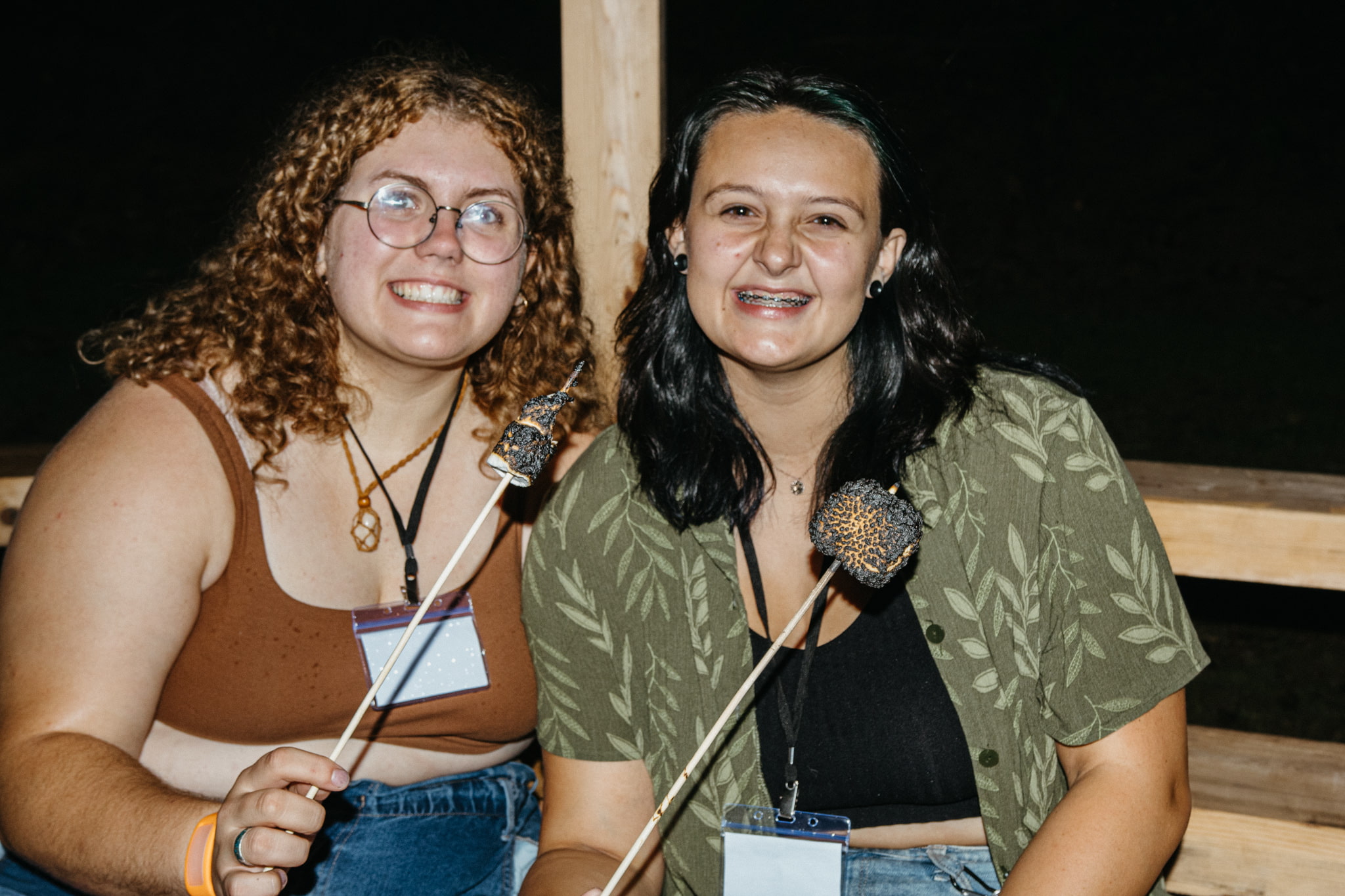
Credit: Justin Murphy
Although Alexa had already won informal bragging rights among her peers in the op-ed writing class, Mollie asked me to present her with a second award as the workshop’s facilitator: the Finding Your Voice merit badge. When I handed Alexa a small circle of fabric bearing the image of a microphone in neat stitches, I remembered something she had told me by the campfire. I asked her what it was like to read her story in front of everyone, and she said that she had felt extremely vulnerable. She thought back to all the times in her life when others made her feel diminished because of her stutter, avoiding eye contact or cocking their heads to the side as she would begin to speak. “I can’t talk in the way that they think is normal, but this is my normal,” she said of those who had judged her in the past.
The camp, however, had embraced Alexa for who she was and what she had to offer the world: a model of resilience. Most of her early childhood was spent in a trailer park in Alum Creek where many residents wrestled with addiction and poverty (a struggle that later became the subject of a documentary film, Surviving Cliffside). Alexa lived among children whose parents, much like her own, didn’t have the resources to care for them. She recalled feet caked black with dirt and diapers left unchanged, adding that she’d had lice “more times than I can count.” But at Jackson’s Mill, Alexa found the family she’d been looking for, one she took back home with her. Just days after camp ended, she would post Instagram photos of a trip to the mall with a gaggle of other campers. In the first picture from her slideshow, Alexa smiles from the corner of the frame, ethereally lit as if from the inside.
I didn’t know what life had in store for Alexa, but before we moved on to the next merit badge, I needed to tell her something. I needed to tell her the problem was never her stutter, but that others were so unwilling to hear what she had to say. I needed to tell her that knowing her, even for just a few days, had made all of us better listeners. “I’m in awe of her courage and her willingness to tell her story, despite the fact that it might take a little more work,” I said as I stood in front of the rows of campers assembled at fold-up tables, my gaze resting on Alexa. “I see a lot of myself in her. It took me a long time to find myself, to find my voice, and to figure myself out. To see all of you so strong in yourselves and so sure of yourselves at such a young age—and especially this person—it’s been incredible.”
A common theme raised at the camp over the five days I spent at Jackson’s Mill was trauma bonding: the intimacy shared by people who experience overlapping grief. Being LGBTQ2S+ in West Virginia often means nursing old wounds, and while interviewing campers and counsellors, I often asked them what they were healing from. Arianna, a 19-year-old Wellesley student in a pink plaid sundress, had spent much of the past year mourning the sudden death of her father. Justin Murphy, a 34-year-old counsellor with a wispy ginger mustache who took photos of the camp throughout the week, told me that he has spent a long time accepting less than the love he deserves. But as much as the camp was about addressing the hurt many had come to internalize, it dared to envision a future in which phantom pain wouldn’t be the norm. Instead that week allowed everyone to feel the kind of happiness one can only truly understand if it has been denied for a long time—a reminder of the simple sweetness of being alive.
I stayed at Justin’s home in Huntington the weekend after camp, unspooling our emotions to the sounds of Gilmore Girls in the background. As we ate spicy tofu from a Thai takeout restaurant, he told me that he didn’t feel like he was the same person that he had been when he unpacked his camera equipment at Jackson’s Mill a few days earlier. Amid the distribution of merit badges, he had been asked to present an award to a camper whose parents weren’t aware that they were using a different name than the one they knew. Not wanting to share that information before they were ready, Justin asked the student which name they would like to use. After some slight hesitation, they decided they were ready to take that next step with their family. “All my stuff says my new name on it,” the camper said. “That’s what all my friends will be calling me, so I think I want to use this as an opportunity to tell them.”
“Letting your loved ones in on who you know you’ve always been—that’s huge.”
As a queer person who had struggled for decades to find somewhere in West Virginia he could be himself, that moment deeply resonated with Justin. “Letting your loved ones in on who you know you’ve always been—that’s huge,” he said. “To have been just a small part of that, I wouldn’t trade that for the world. Being part of this camp is probably what I’m most proud of having done in my entire life.”
Mollie and Billy said they are already looking at locations for next year’s camp. As much of a toil as it is to organize such a massive undertaking between the two of them, they were already sending each other links to potential sites even before they fully unpacked their bags. Mollie said that it is her wish to see others across the country mount their own versions of what they’ve built in West Virginia. She often gets emails from parents who live in states like California, but have strong connections to Appalachia and want their children to be a part of the camp, and it breaks her heart to tell them they can’t participate. For every application that’s accepted, there are several more youth or even counsellors they simply can’t accommodate on limited funding.
When we spoke, Mollie said what made her so certain that others could replicate their success was the overwhelming support the camp had received. This year, organizers posted an Amazon wish list with beach balls and tie-dye kits for the students, community members bought every single item they needed in 24 hours. “I hope people steal our idea,” Mollie said. “I would love to see people just absolutely steal the hell out of it and do it everywhere. I hope it becomes a thing in many more places, so that all these kids have a shot at meeting other kids who are like them.”
Author’s note: After this story was written, Alexa’s mother went back to her father.
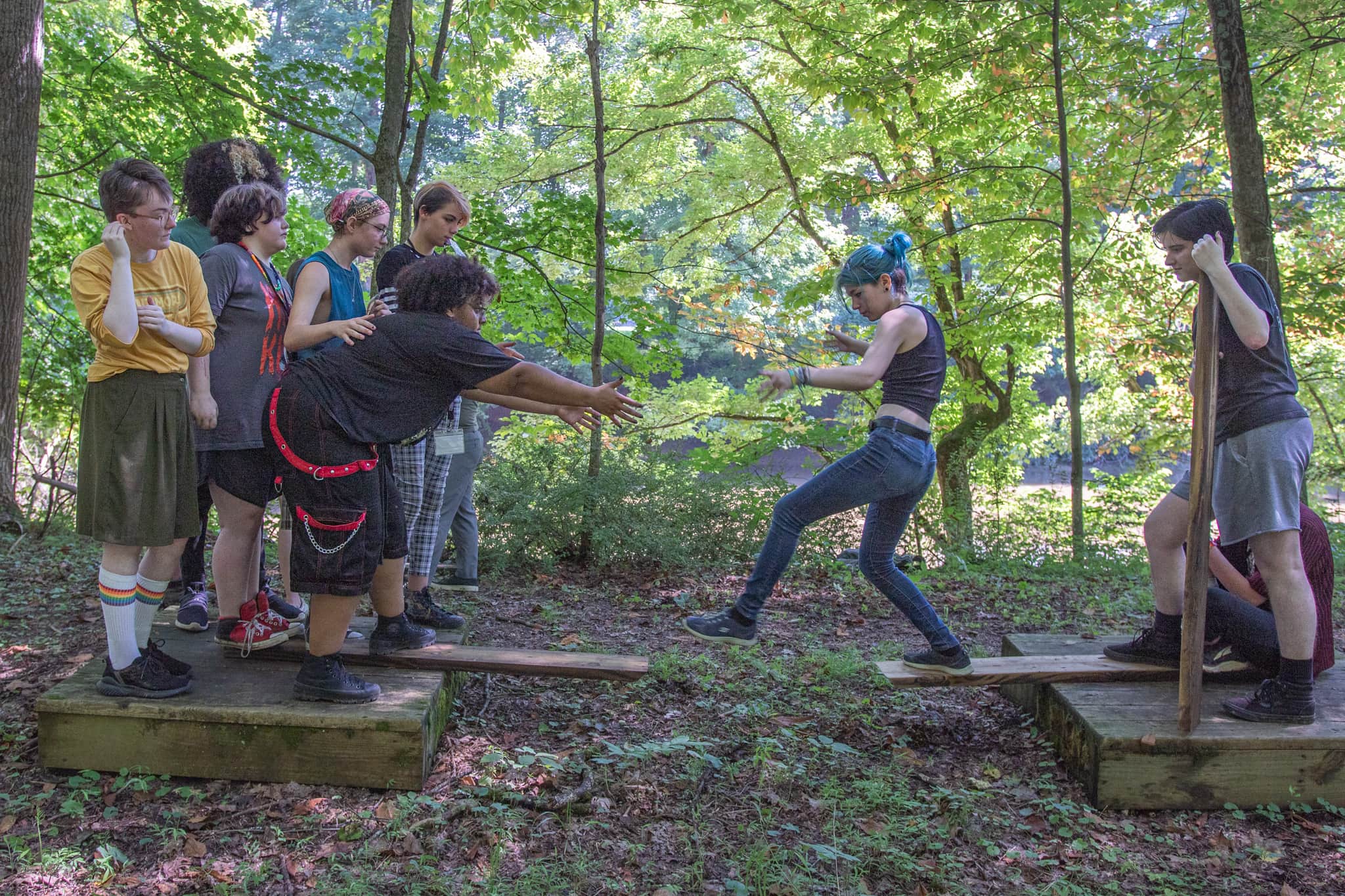

 Why you can trust Xtra
Why you can trust Xtra